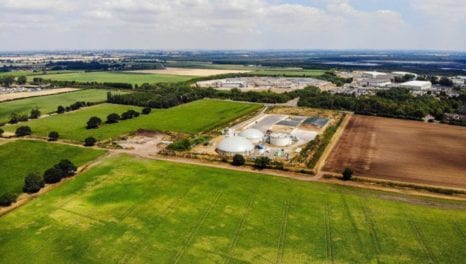New governance needed for UK power grid: FPSA report
New organisational and governance capabilities will be required in order to support urgent reform of the UK power grid's functionality, according to the authors of the Future Power Systems Architecture (FPSA) report.
20th July 2016 by Networks

The report, which will be officially launched at an event in London later today, sets out thirty-five substantially new or extended functions which will be required to meet government and power system objectives by 2030.
The implementation of this new functionality will raise significant challenges, technically, and also for market and commercial structures, according to the report’s authors.
Report breakdown
A breakdown of the FPSA project outputs by Network editor Jane Gray is availble here.
Although the project scope for the FPSA was limited to technical considerations, the final report does warn that an effective response to the implementation of extensive new grid functionality will “require new organisational and governance capabilities to establish and energise the whole-system approach necessary for transforming GB’s power system architecture”.
The FPSA investigation was commissioned by the Department for Energy and Climate Change – whose responsibilities have now been folded into the Department for Business, Energy and Industrial Strategy. It was led by the Energy Systems Catapult and the Institution for Engineering and Technology (IET).
The project explored the functionality that the whole power system will need by 2030 to respond to a likely transformation in consumer needs and the way in which electricity supply and demand are balanced. It also explored the potential impact of extensive electrification of heat and transport which project delivery board chair Dr Simon Harrison described as “the energy we currently deliver to the point of end use as oil and gas fuels.”
Harrison, who is also chair of the IET energy policy panel said ahead of the report launch: “The conclusions [of the report] are clear.
“We need to act now to create an industry where we are empowered by this transformation, and find new ways to work that release the value and possibilities the new technology brings for us. The FPSA Steering Group has agreed that there needs to be a staged approach to implementing the recommendations, with urgent actions identified for early progression.”
Nick Winser, chairman of the Energy Systems Catapult and chair of the FPSA joint sponsors board added that in these “exciting times” for the energy sector, the rapid rise of energy storage and distributed energy technologies require government and industry to “rethink the way in which we balance competing needs around the energy agenda.”
He continued: “Fundamental to our success is our ability to create the right conditions to support and implement truly innovative thinking, encourage meaningful conversations from across the sector and ensure that new services and techniques will work harmoniously across the power grid for the benefit of customers.
“The FPSA project represents just such an approach, which is why the Energy Systems Catapult believes the publication of this report is such an important step in designing an electricity system fit for our shared future.”
The report makes six key recommendations, highlighting a need to:
1. Align power system architecture developments with major government policy commitments;
2. Create an implementation framework for delivery of the required functionality;
3. Deepen and extend the functional analysis through further elaboration and refinement of functional requirements;
4. Develop a transition pathway to ensure market mechanisms are maximised and government intervention minimised;
5. Extend the evaluation and identification of R&D and innovation requirements and;
6. Maintain the momentum developed in the FPSA project by formalising and supporting cross-industry and inter-agency working.
Comments
Login on register to comment
Related content

Gas
Cadent backs launch of major bio-CNG HGV refuelling station
Gas network’s £250,000 infrastructure investment ensures supplies to existing connected customers have not been impacted

Gas
Editor’s blog: The biggest tests of resilience are yet to come
Network content director Jane Gray reflects on the industry's coronavirus response to date and the challenges still to come.

Gas
From the front line: Chris Garside and Andy Simcoe, Northern Gas Networks
Key workers across the power and gas networks are playing a critical role in the national response to Coronavirus. Network has committed to profiling their stories.
Related supplier content
![‘Learning by doing’ on the road to net zero [test product]](https://networksonline.s3.amazonaws.com/products/images/3.jpg)
People & Skills
‘Learning by doing’ on the road to net zero [test product]
DSO director Andrew Roper discusses 'Learning by doing'

Power
Load patterns and lockdown: how Covid-19 is impacting electricity networks
Insights into dynamics on the low voltage network as the outbreak unfolds

Heat
How E.ON. is helping the City of London become a zero emissions city
Discover Citigen. Deep in the heart of our bustling capital